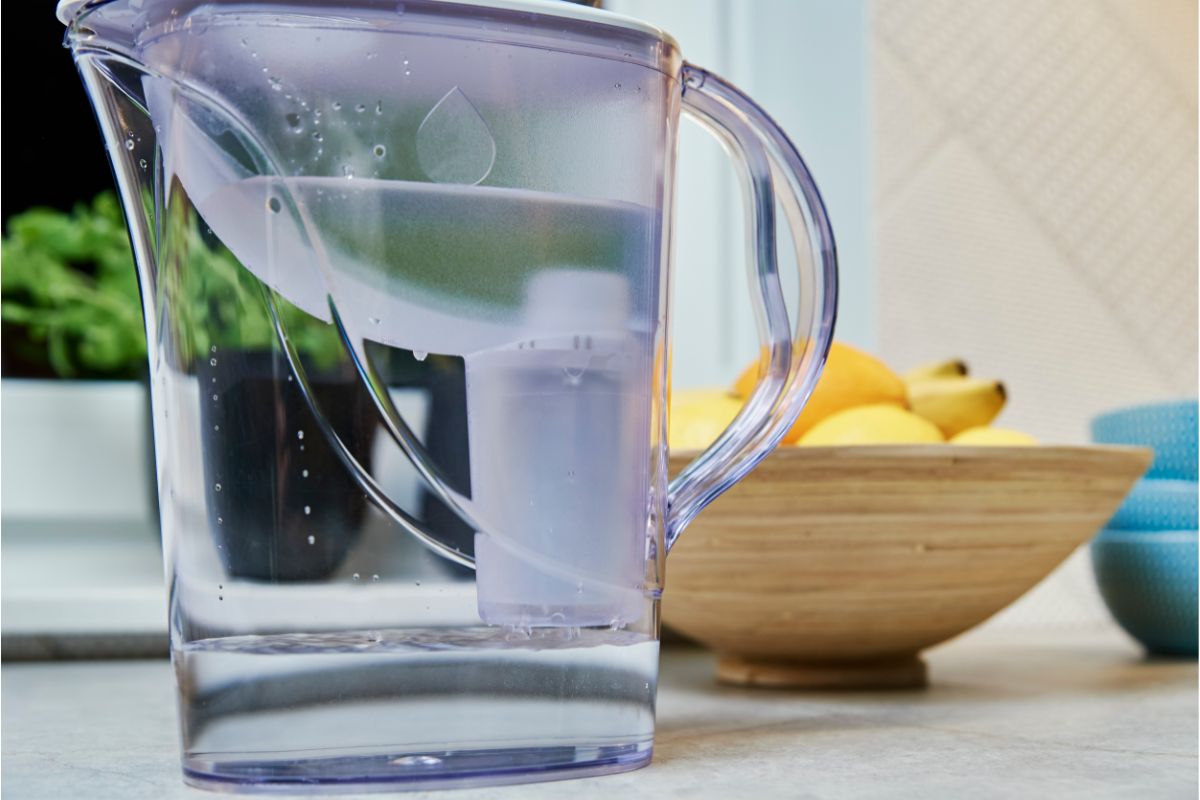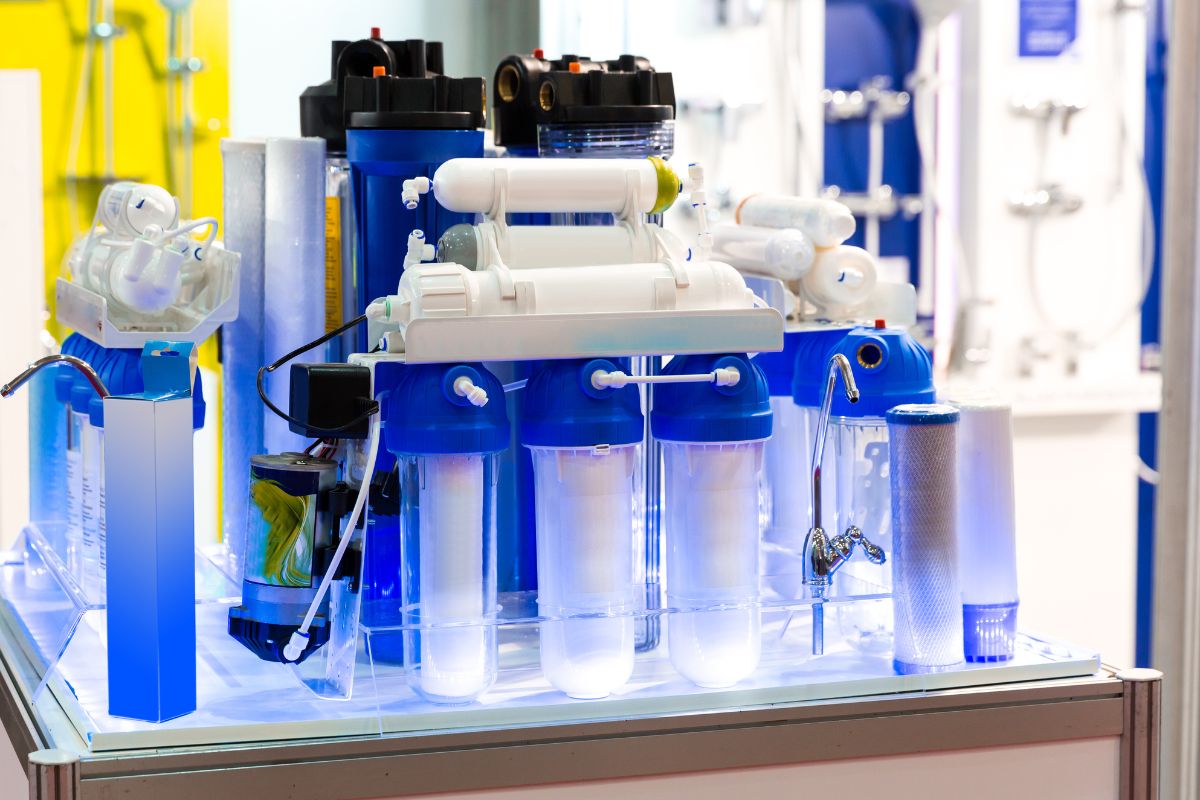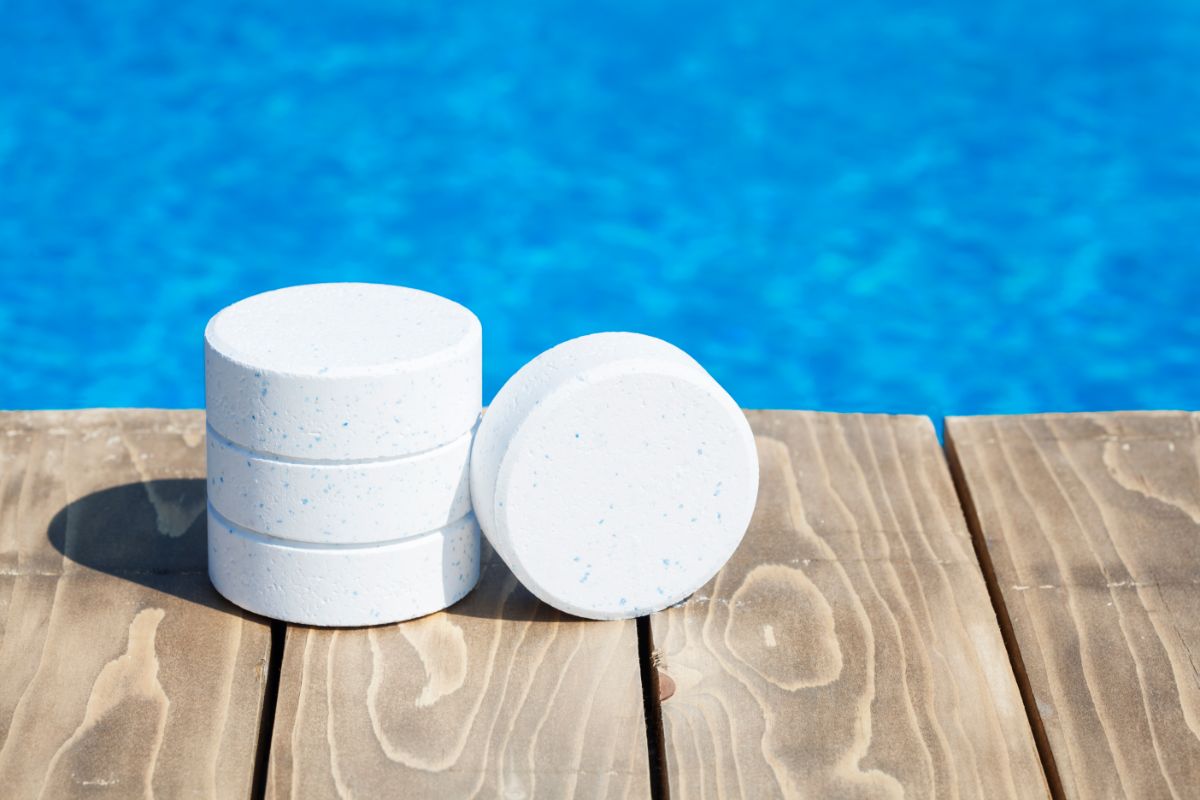We all know how important water is to our bodies, we lose so much fluid during the day. Which is why we need 8 glasses of water a day to keep our bodies functioning to the highest standard that they can!
But what if the water that you’re drinking to improve bodily function actually contains impurities and can eventually lead to your health declining?
That impurity would be fluoride. It’s in our toothpaste, water and even some of our foods. You may be wondering why it can be bad for your health, or even what it is.
We’re going to answer those questions and more, along with if filtered water has fluoride in it, so you know how to keep your body as healthy as possible.
Contents
What is fluoride?
Fluoride is a naturally occurring mineral found in rocks, soil and plants amongst other things. It’s also found in toothpaste, which you might already know.
It helps to strengthen enamel and prevent cavities, this is why we have fluoride in our drinking water too, though it’s only small amounts.
The current enforceable drinking water standard for fluoride is 4.0mg/L in the US, but the amount of fluoride in your drinking water will depend on where you live.
Why should I remove it from my drinking water?
There’s been countless back and forths over the last number of years about whether fluoride is good or bad for your health. Let’s look at the reasons why it’s beneficial and why it could be detrimental to your health.
The benefits of fluoride
The biggest benefit of fluoride is that it keeps your teeth healthy.
It protects your teeth from growing harmful bacteria, it helps to rebuild the enamel you lose on your teeth, it also can reverse early stages of tooth decay and slows down the loss of mineral from the tooth enamel.
When you eat sugar and carbs, the bacteria in your mouth has to work overtime and it produces acids that end up eating away the minerals in your tooth enamel. Losing your tooth enamel can eventually lead to tooth decay or cavities, which can be super painful.
This is where fluoride enters, it helps to rebuild the minerals in the enamel and thus builds a barrier to any harmful bacteria, meaning you’re less likely to get cavities and it provides resistance to tooth decay.
Children living in poorer areas with no fluoride in their water have been found to have 5 times more decay than children who have fluoridated water.
This research strongly suggests that fluoride should be added to water and provides the best way to get rid of these dental inequalities.
What are the potential side effects of fluoride?
Whilst fluoride has many benefits that can’t be denied and is fine to consume in small quantities, the trouble with fluoride is that it’s in so many of the things we consume daily that we actually end up consuming it in quite large quantities.
Certain studies have shown that fluoride may contribute to weakening the bones and perhaps even the joint connectivity tissue. Fluoride can also cause a condition called fluorosis.
Dental Fluorosis
This is when too much fluoride has been consumed whilst the teeth are still forming under the gums. This then leads to discoloration forming on your teeth, or white spots, which does no harm apart from affecting the appearance of your teeth.
This is more likely to occur in children, due to their teeth not fully forming yet and they’re more likely to swallow the toothpaste.
You can control the amount of fluoride your child intakes by supervising them whilst they are brushing their teeth, to ensure they don’t swallow any.
What kind of filters will remove fluoride from water?
Now the question of whether filtered water contains fluoride can’t truly be answered. Some filtered water will contain fluoride whilst some won’t, it will all depend on the filter you have and not all of them are good at removing fluoride from water. So let’s list some of the best ones.
Reverse osmosis systems
Reverse Osmosis Systems are great at filtering out not only fluoride but bacteria and other chemicals too. This is because its molecules are larger than the molecules of water, it removes around 95% of fluoride which is a lot!
The only downside to this filtration system being super power is that it often removes a lot of the good minerals like iron and calcium.
They’re typically installed under a kitchen sink and can be linked to your refrigerator and ice machine, making the water straight from your fridge fluoride-free.
Installing a reverse osmosis system typically aren’t too expensive too, with a family of four able to have fresh, filtered water for just pennies per gallon. It’s one of the most cost-effective filtration systems that give you bang for your buck.
Gravity water filters
These filters are arguably better than the reverse osmosis systems, removing 97% of fluoride. They are also much cheaper, so what’s the downside?
Well, it’s not a downside if you’re drinking a whole lot of water throughout the day. But these filters can be quite slow, so it’s really only effective if you’re drinking about 5-10 liters of water a day.
They’re also not as good as getting rid of other contaminants in the water as reverse osmosis systems are.
Final Thoughts
Many people will have their own thoughts on fluoride, and whether or not they think it’s safe.
Whilst it’s proven to be beneficial for your oral health, the amount of fluoride in our daily consumption of food and water means that we now consume an unhealthy amount of fluoride that does have negative effects, most notably fluorosis.
The bigger side effects of fluoride are still quite unknown, some studies say it’s fine whereas some studies say it has a detrimental effect on our health. So if you want it removed from your water, ensure you get a capable filtering system to do so.










